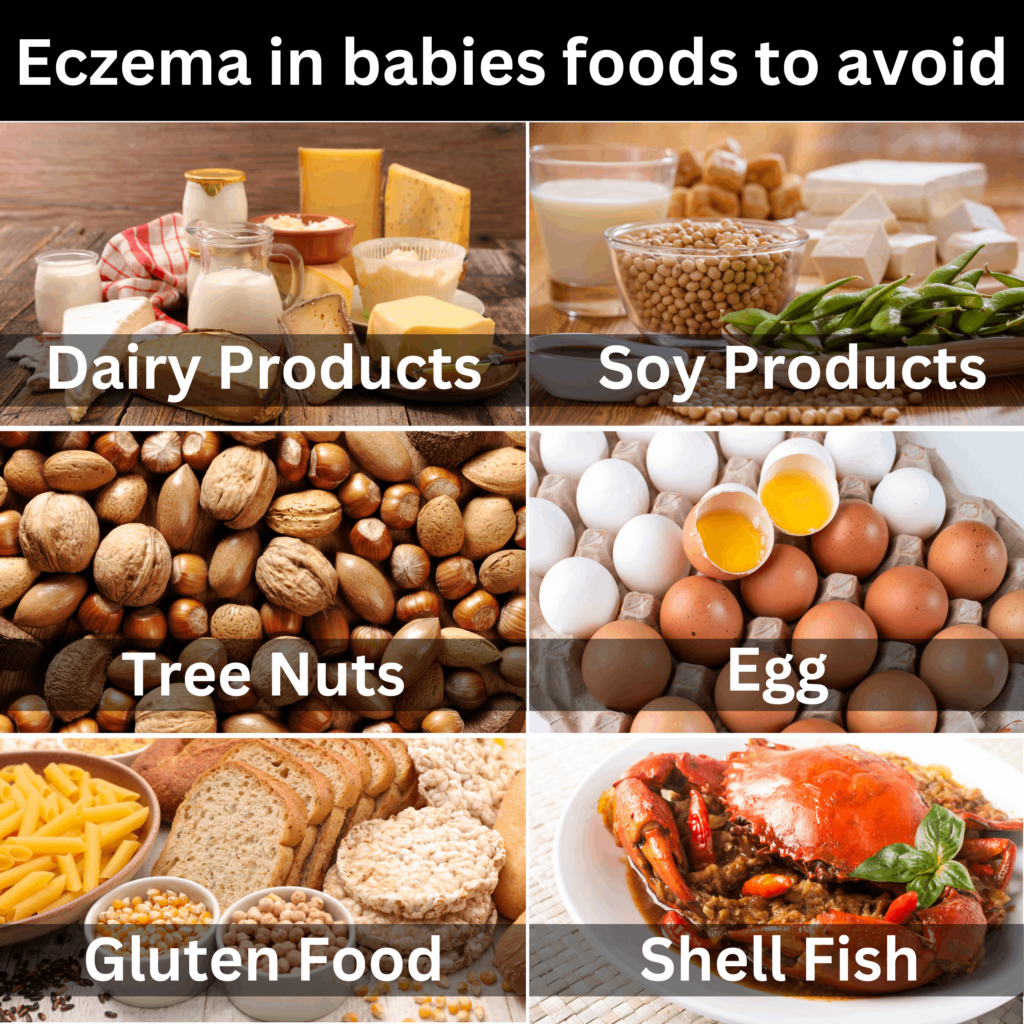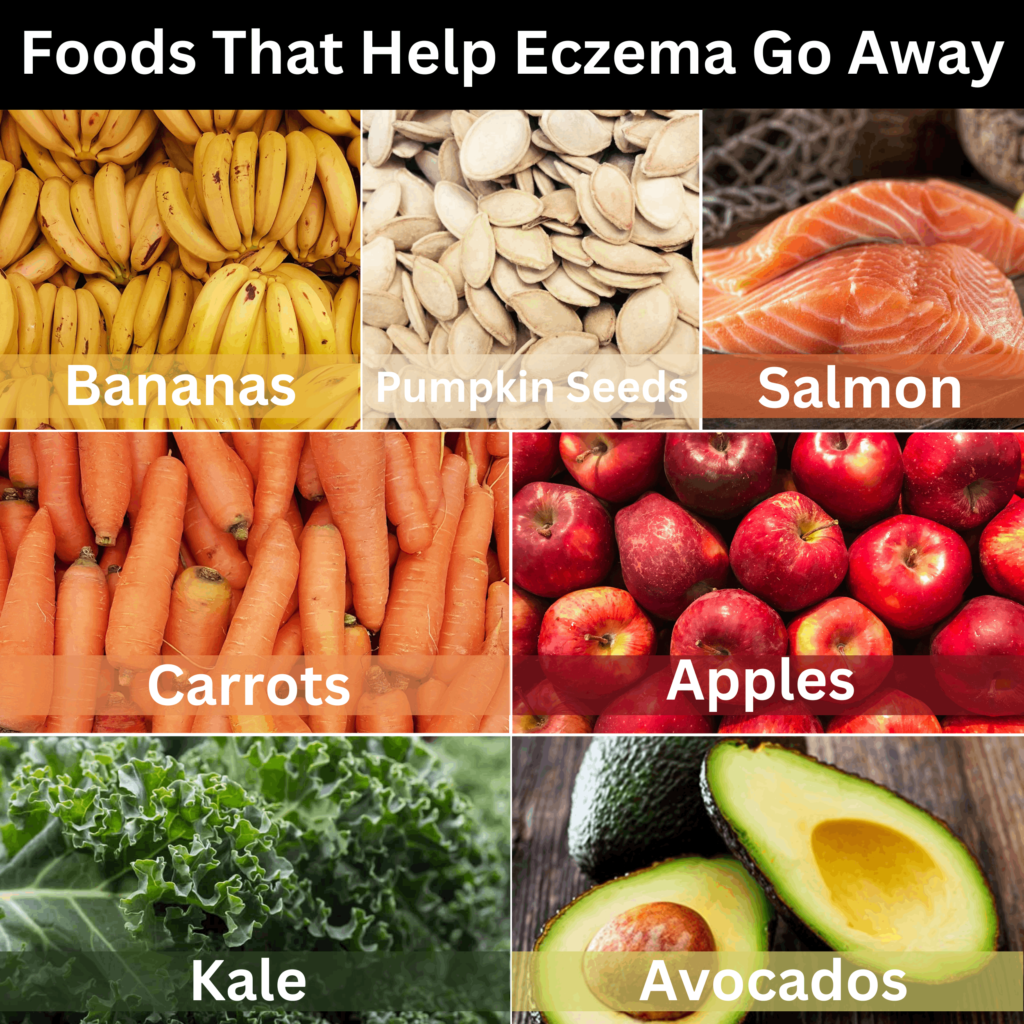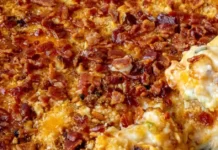Eczema (Atopic dermatitis) is a condition that causes dry and itchy patches on the skin. Eczema is not contagious it is a common condition. The skin gets dry, itchy, and inflamed. This condition is common in young children commonly babies. Eczema is most prominently present on cheeks, forehead, and scalp of an infant. Later, it may spread to knees, elbows, and trunk except for the diaper areas.
Kids from 1-3 ages who have eczema has an allergy that could go worse with some foods which can cause swelling of face, lips, and eyes. These symptoms can occur after 30 minutes of eating food. It has been known that eczema particularly in childhood can be affected by food whether it’s the cure or cause.
Eczema in babies foods to avoid
Studies show that avoiding some food can really make a difference so here are some food options that can trigger eczema in babies can include:

1: Dairy products
Dairy products like milk, yogurt, and cheese. Research shows that 39% of babies develop an immediate reaction after consuming cow’s milk. A report showed that infants with eczema are six times more prone to have an allergy reaction to peanuts, eggs, cow’s milk as compared to children without eczema. However, there are plant-based milk alternatives to cow milk, cashew milk, soy milk, and almond milk.
2: Soy products
Soy products like tofu, edamame, or soy milk can trigger skin reactions like eczema by making your immune system to respond. Allergy to soy products is not very common. Among 175 people with eczema, 30% had an immune reaction to soy products. It is important for you to know that some processed foods have soy in them so that you are conscious of them
- Infant formula
- Baby foods
- cereals
- Canned broth and soup
- Canned tuna and meat
- Ice cream
- High protein energy bars and snacks
- Low-fat peanut butter
- Meat substitutes
- Vegetable oil
3: Tree nuts
Tree nuts such as cashew, almonds, walnuts, and pecans. This form of allergy that is caused in children and adults is very common and may affect up to 4.9% of them and can worsen eczema. Processed food that has tree nuts in them and may knowingly give them to your child can be
- Chocolates
- Candies
- Breakfast cereals
- Crackers
- Lotions, shampoos, and soaps can have them
4: Egg
The protein present in egg whites or egg yolks can elevate eczema in babies. A study report shows that children with eczema are 6 times more likely to develop an egg allergy, in contrast to those without eczema. Also, these allergies can go away by the age of five, and in some cases, eggs cannot harm children if they are taken in a different form such as baked eggs.
5: Gluten Food
Gluten present in wheat which makes pasta, tortilla, bread, and other baked products is added to bring elasticity and structure to the dough. Wheat may worsen eczema, asthma, and digestive issues. Whereas, gluten triggers immune reactions when gluten containing foods are eaten.
6: Fish and shellfish
Fish that have fins and scales example salmon, trout, tuna, and tilapia, and shellfish (aquatic animals that have shell like exteriors) such as crabs, lobsters, shrimps, and mussels. Although fish and shellfish are a rich source of protein they can still cause itching, hives, and eczema.
Eczema after starting solids
Eczema after starting solids can be really challenging and stressful for parents
After meals when you wipe your baby’s face use lukewarm water instead of hot water. Keep the baby’s skin dry and apply a wise amount of hypoallergenic moisturizer
Avoid wiping baby’s face repeatedly after meals as this can irritate the skin
Apply a thin layer of ointment before giving meals to your baby as this acts as a contact barrier between acids and allergens in the food and skin.
Foods that help eczema go away
In contrast to foods that can induce eczema, there is also a list of foods that can help eczema to go away

- Bananas are a rich source of potassium, fiber, vitamin C, and manganese with all these components in the multi beneficial fruit it clearly benefits your skin.
- Pumpkin seeds are a great source of vitamin E, magnesium, and zinc. Zinc is a really beneficial nutrient when it comes to eczema. This can help speed up wound healing and also promotes skin cell regeneration. When zinc deficiency occurs it impacts the skin. Also, pumpkin seeds are versatile so they are a good way of increasing your intake
- Salmon is a really good source of essential fatty acids, and omega-3 in research it has appeared that omega-3 helps to ease eczema symptoms. It also has anti-inflammatory properties. So increasing your intake of Omega-3 directly or indirectly like that in salmon is a good idea.
- Carrots have beta carotene and beta carotene is really in favor of your skin. Our body converts beta carotene to vitamin A which helps your skin to stay moisturized. Also, it helps your skin to heal and develop new skin cells.
- Apples also have vitamin C which is again very good for your skin. It is vital for maintaining healthy collagen production which helps your skin stay strong and elasticated. For eczema it has anti-inflammatory properties it can help soothe inflammation in the gut blocking the release of pro-inflammatory enzymes.
- Kale is rich in vitamin K, manganese, vitamin C, beta carotene, and anti-oxidants ideal for supporting your immune system and skin. Yes, kale does not taste well but it can be blended into fruit smoothies.
- Avocados are full of vitamin E which helps strengthen vein walls, support the immune system, and also work as a potent antioxidant. Healthy fats like these can promote the growth of good gut bacteria and the health of your hut is intricately linked with the well-being of your skin
- Moreover, eat food that has anti-inflammatory properties, Go for a Mediterranean diet as this has more vegetables, ayurvedic products, gluten free food as well
Reference:







